- Home
- Parnell Hall
The Underground Man sw-3 Page 15
The Underground Man sw-3 Read online
Page 15
“Have you read it?”
Tracy shook her head. “No. I knew you were waiting for it. As soon as it arrived, I brought it in.”
“All right,” Steve said. “Listen to this.”
He picked up the will and read, “‘I, Jack Walsh, being of sound mind and body, do hereby revoke all prior wills and make this my last will and testament.’”
Steve looked up from the will. “He now puts in the date, specifying not only February 26th, but February 26th at 2:30 p.m.”
“What’s wrong with that?” Tracy asked.
“Nothing. It’s just odd. People date a will. They don’t usually put the exact hour.”
“So he was a precise man.”
“He was also a lunatic. At least, arguably. And an insane man cannot write a will. Not and have it binding. Putting the time on is odd, and anything odd is suspect.
“But that’s nothing,” Steve said. “Listen to the rest of it. I’m writing this will in the 66th Street Station of the Broadway Number One line. It pleases me to do so. I think it a nice touch that a document affecting the transfer of so much money should be executed at the very spot where indigents sleep.
“‘Having revoked all prior wills, I now dispose of my property as follows:
“‘To my relatives, Rose Tindel, Pat Grayson, Claire Chesterton, and Carl Jenson, I leave the sum of one thousand dollars each, in the hope that they will use it to pull themselves together and find themselves and their lazy, worthless spouses work.
“‘The rest, remainder and residue of my property I leave as follows:
“‘To Jeremy Dawson, who though only a boy, has exhibited the attributes of consideration, concern and kindness. It was he who came to me in my hour of need, and he who saw fit to look out for my welfare. He is deserving, and this shall be his reward.
“‘I hereby appoint the Chase Manhattan Bank to act as trustee for Jeremy Dawson until he shall reach the age of twenty-one, at which time they are to turn over the entire principal to him without restriction or reservation. I appoint the bank sole trustee, and specifically state that none of the aforementioned relatives, Rose Tindel, Pat Grayson, Claire Chesterton, Carl Jenson, or the aforementioned spouses, Jason Tindel and Fred Grayson, shall have any say whatsoever in the trust, nor have any right to use any of the monies contained therein for any purpose whatsoever.’”
Steve looked up from the will, shook his head, said, “And that’s it.”
“So what’s wrong with that?” Tracy said.
“Everything,” Steve said. He picked up the will, handed it to her. “Here. Take a look.”
Tracy took the will, looked at it and frowned. “Seems O.K. to me.”
“Yeah, well there’s something missing.”
“Really? What? No, don’t tell me.” She looked at the will again and then her eyes widened. “Son of a bitch.”
“Got it?”
“Yeah. The signature.”
“Right.”
“He didn’t sign it.”
“No. And that’s very odd, because it’s one of the things we specifically talked about.”
“Yeah, I remember.”
“I told him writing his name at the top could be construed as a signature, but to make sure there’s no mistake, sign it at the bottom.”
“Suppose he misunderstood you?”
“Not that man. He’s sharp as a tack.”
“So why’d he do it?”
“I don’t know. Maybe he didn’t.”
Tracy frowned. “What do you mean?”
“Well, take a look. Jack Walsh was writing in longhand. The handwriting is spread out and nearly fills the page.”
“So?”
“So what if there’s a page 2?”
Tracy looked at him. “You think there is?”
“It’s possible there was.”
“All right, well what if there was? What difference would it make?”
“It might make a lot,” Steve said. “Look at the way the will is worded.”
“What do you mean?”
“Particularly the residuary clause. Notice, he doesn’t say, ‘All the rest, remainder and residue of my estate I leave to Jeremy Dawson.’ Instead, he says, ‘All the rest, remainder and residue of my estate I leave as follows:’ Then there’s a colon. Then he starts a paragraph, To Jeremy Dawson, etc., etc.’”
“What’s the difference?”
“Big difference. Suppose on page 2 there’s another short paragraph about how the trust is set up and how the other relatives can’t get their hands on it, ending with a semicolon. And then the next paragraph begins, To my beloved such-and-such.’”
“You mean there could be another heir? He could have left his money to two people?”
“Exactly. And the way this will is worded, that’s not really such a long shot.”
“Well, if that’s true,” Tracy said, “what happened to page 2?”
“There’s two possibilities. One, Jeremy destroyed it so he’d inherit the whole thing.”
“Is he smart enough to do that?”
“Hard to tell. He’s smart in some ways, dumb in others. He’s a tough kid to read.”
“What’s the other possibility?”
“Jack Walsh gave it to someone else.”
“Why would he do that?”
“How should I know? The man was eccentric. It might have amused him. And then there’s a third possibility.”
“What’s that?”
“He might have kept it himself. In which case it burned up with him.”
“Shit. You really think he did?”
“I think it’s a good possibility. I keep trying to get in the man’s mind. And I know from the questions he asked me he was planning something exactly of that sort. If the will isn’t found right away, and the prior will gets probated, and then the new will shows up. Well, it’s a just slight wrinkle on that to what if half of the will gets probated and then the other half shows up.”
“You mean-”
“Exactly. I think it’s entirely possible Jack Walsh wrote out a second half of the will, which he planned to stash somewhere with someone, to be mailed to me or the police or the bank at some later specified date.”
“If that’s true, then we’ll never know.”
“Right, and-”
Steve broke off at the sound of the outer door opening and closing. “Someone in the outer office.”
“I’ll see who it is,” Tracy said.
She went out, returned moments later.
“Jason Tindel to see you.”
“Oh? Is he on the warpath?”
“Not with me. He seemed perfectly polite and respectful.”
“This should be fun. Show him in.”
Tracy went out and came in ushering Jason Tindel.
Tindel immediately held up his hands in a conciliatory gesture. “I’m not angry,” he said.
“Oh?”
“No. That was some job you did to me on the witness stand. But I understand you were only doing your job. There’s no hard feelings.”
“I’m glad to hear it. So what can I do for you?”
“It’s about Jeremy, of course.”
“Oh?”
“Yes. The family’s very concerned. At first we thought it was ridiculous, but now it appears there actually is something of a case.”
“The police seem to think so.”
“That’s absurd. Jeremy wouldn’t do anything like that. Not to Uncle Jack. Now Jeremy is a bit wild. He’s been in scrapes before. There’s some things I wouldn’t put past him. But not this.”
“I’m glad to hear it,” Steve said. “But why are you here?”
Jason frowned. “To offer my support, of course. The whole family’s support.”
“Oh?”
“Well, I would think you’d need help in this. From what I hear, the police happen to have a pretty good case. Well, we happen to know a few things about Jeremy’s background, his history, that could assist you in putting together the defense.
”
“Such as what?”
“Well, Jeremy hasn’t always been mentally stable. There’s been incidents in the past, things you could bring up that would show diminished responsibility.”
A grin spread over Steve’s face. “Diminished responsibility?”
“Yes.”
“You’ve seen the will, haven’t you? Jeremy’s will?”
Jason Tindel frowned. “Yes. Why?”
“And you plan to contest it, don’t you?”
“Well, of course I do,” Jason said.
“On what grounds?”
“Lots of grounds. When Jack Walsh made that will, he was not of sound mind. There’s also the question of undue influence. There’s also the fact that the will isn’t signed.”
“Sounds like good grounds to me,” Steve said. “I assume a lawyer pointed them out to you?”
“I spoke to my lawyer, yes.”
“Yeah, I was sure you had,” Steve said. “The moment you used the term, ‘diminished responsibility.’ And your lawyer advised you you could contest the will on those grounds?”
“Well, yes he did.”
“And he also told you you couldn’t be sure of winning, didn’t he?”
Jason frowned. “What’s that got to do with it?”
“It’s got everything to do with it,” Steve said. “I was wondering why you were here. Then you said ‘diminished responsibility and I knew. Because I know the next thing your lawyer told you. And that’s even if you couldn’t knock out Jeremy’s will, it still wouldn’t matter if Jeremy got convicted of murder. ’Cause a murderer can’t inherit from his victim. That’s why you’re in here offering me support, and that’s why the support isn’t anything that’s gonna get Jeremy off. It’s the type of stuff to get the sentence reduced once he’s convicted. ’Cause you don’t care how long he goes to jail, just as long as he’s convicted and it knocks out his will.”
Jason Tindel looked totally nonplussed. “Well, now …” he said.
“Well now, indeed,” Steve said. He smiled. “Well, anyway I’m glad you’re not angry. I’m not angry either.” Steve pointed. “But if you wouldn’t mind doing me the favor, would you please get your ass out of my office?”
26
Steve Winslow smiled at Jeremy Dawson through the wire mesh screen in the lockup. “I like your haircut.”
Jeremy’s eyes flashed. “Hey, fuck you,” he said. He ran his hand over his bald head. “I feel like a freak.”
Steve had trouble keeping a straight face. He shrugged. “Well, there’s freaks and there’s freaks.”
“Hey, I don’t need your abuse. You said shave it off and I shaved it off. But I feel stupid as hell.”
“Relax. Bald is sexy. Remember Yul Brynner.”
“Who?”
Steve groaned. “Never mind.” He waved his hand around the lockup. “So how do you like your new surroundings?”
“Jail is jail, man. When am I gonna get out of here?”
“Small problem there. You’ve been indicted for murder.”
“Yeah, well what about bail?”
“You can’t make bail.”
“Why not? I just inherited a million bucks.”
“Yeah, well that’s another thing.”
“What is?”
“Where’s page 2, Jeremy?”
“What?”
“You know what. What happened to the second page?”
“What second page?”
“The will, Jeremy. The second page of the will.”
Jeremy stared at Steve Winslow. “What the fuck are you talking about?”
Steve frowned. He’d been watching Jeremy’s reactions closely. Jeremy Dawson seemed utterly baffled. Either his confusion was genuine, or the kid was one hell of an actor.
Steve Winslow couldn’t tell which. And, he figured, with anyone else he probably could. But this punk kid, this bald teenager staring up at him, this stupid street-smart crack dealer, he couldn’t read at all.
Steve sighed. “There’s a problem with the will, Jeremy.”
“What do you mean? What problem?”
“The will isn’t signed.”
“What are you talking about? I saw him write it. He wrote his name on it.”
“He didn’t sign it at the bottom.”
“What the hell difference does it make?”
“Maybe none. But the point is, your relatives are contesting it.”
“Can they win?”
“I don’t think so.”
“So what’s the problem?”
“The problem is they’re contesting it. Whether they can win or not is a moot point. That means it’s not important, it doesn’t matter. What’s important is they’re contesting it at all.”
“Why?”
“Because until the will contest is settled, the will can’t be probated and you can’t inherit.”
“Oh.”
“Which means you can’t touch the money, and I can’t use it to pay your bail.”
“Shit.”
“Exactly. Which means right now the only way for you to get out of here is to have twelve people stand up and say ‘not guilty.’ So forget the will, forget the money, forget the bail. Beating the rap, that’s the only thing now.”
Jeremy held up his hands. “Wait a minute, wait a minute. I can’t forget the will. Now, you say they’re contesting it-how can they do that?”
“Any relative can contest a will.”
“No, I mean what are they claiming?”
“First of all, that the will isn’t signed.”
“It is signed.”
“It’s a debatable point. I’m gonna debate it in court. I don’t need to debate it with you.”
“But isn’t it a point you can win?”
“Nothing’s certain. Let’s just say we got a good shot.”
“O.K. What else do they claim?”
“They’ll claim undue influence.”
“What does that mean?”
“That you were with your uncle when he wrote the will, that you coerced him into writing it.”
“Bullshit. It was all his idea. I didn’t even know he was doing it.”
“I understand. I’m just telling you what they’ll claim.”
“Well, they’re wrong.”
“And I will so inform the judge. I’m on your side, Jeremy. You don’t have to argue this with me.”
“Yeah, right. What else will they claim?”
“That Jack Walsh wasn’t of sound mind when he made the will.”
“Wait a minute. That’s been decided. You proved he was.”
“A judge ruled him sane then. It doesn’t mean one now will rule he was.”
“But-”
Steve Winslow held up his hands. “Look, kid. I’m trying to help. But I talk to you, and I can’t help feeling, ‘My god, am I here all alone?’ Now I understand, a million bucks is a lot of money, you’re interested, you wanna know if you’re gonna get it.
“But get this through your thick head. If you’re convicted of murder, one, you’re going to jail and two, you ain’t getting a cent. So get your head out of the clouds, stop thinking about the damn money, and give me some help with this damn murder case.”
Steve stopped and rubbed his head. “Now, you’ve had time to think about it. Who had the combination to your locker? Who could have taken the gun?”
Jeremy sighed and shook his head. “There’s no one.”
“Nobody ever picked up something for you after school?”
“No.”
“No one you ever asked to do you a favor, to get something out of your locker for you?”
“No.”
“What about the movie?”
“What?”
“The movie. And afterwards. Your alibi. You remember anyone who saw you, anyone at all?”
“No, I don’t.”
“Think. You must have seen someone.”
“Well, I didn’t.”
“The whole time?”
“Yeah.”
“You didn’t see anyone?”
“No.”
Steve sighed. “Christ, you’re a big help.”
Jeremy shrugged. “Hey, I’m sorry.”
Steve looked at him. He shook his head. “No, you’re not,” he said. “But let me tell you something. When District Attorney Harry Dirkson gets you on the witness stand-” Steve pointed his finger, “-then you’ll be sorry.”
27
Mark Taylor flipped open his notebook.
“O.K., here’s the dope. Alibis, get your alibis, red-hot alibis. The way it stacks up, the women got ‘em and the men don’t.”
“Oh?”
“Yeah. Claire Chesterton, Pat Grayson and Rose Tindel all alibi each other. Convenient as all hell, but it probably all checks out. The three of ‘em were on a shopping spree in the afternoon. Not that they did much shopping. If you want some cash receipts to back it up, they probably don’t have ‘em. What they were doin’ was touring shopping malls. Browsing here, browsing there. Bloomingdale’s, Conran’s, places like that. I don’t think they bought a thing. Frankly, I don’t think they got much money. But they spent the afternoon doing it. Then they caught dinner at one of the mall shops, and went to the movies.”
“You’re kidding.”
“No. Why?”
“Don’t tell me they saw a film called Heathers?”
“Christ, no. Not their cup of tea. They saw Rain Man.”
“Oh.”
“Yeah. There’s a big RKO Tenplex on Route 4, that’s where they went. Went there, got home about ten-thirty.”
“And?”
“And what?”
“Murder could have been as much as an hour later. What did they do till then?”
“Puttered around the house and went to bed. Why?”
“Well, Jeremy Dawson says he came home and found Claire Chesterton watching TV.”
“Right.”
“So I’m wondering what happened to the other two.”
“They went up to bed.”
“Is that confirmed?”
Taylor looked slightly exasperated. “Not in any way that will stand up in court. But can you imagine any one of the three of ‘em taking off at ten-thirty at night, getting to Jeremy’s school, securing the gun, getting into Manhattan, finding Jack Walsh and plugging him, and then setting the body on fire-well, just between you and me you’re gonna have a little trouble selling it to a jury.”

 Clicker Training
Clicker Training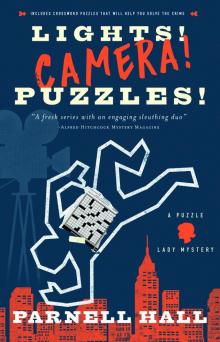 Lights! Camera! Puzzles!
Lights! Camera! Puzzles!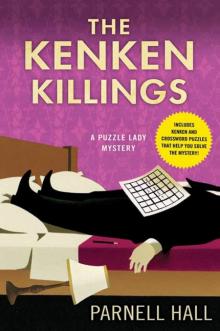 The KenKen Killings
The KenKen Killings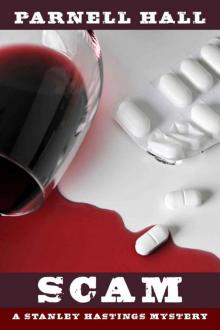 12-Scam
12-Scam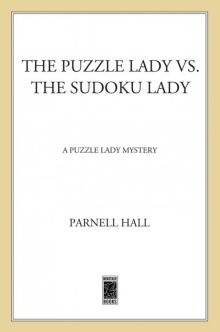 The Puzzle Lady vs. the Sudoku Lady
The Puzzle Lady vs. the Sudoku Lady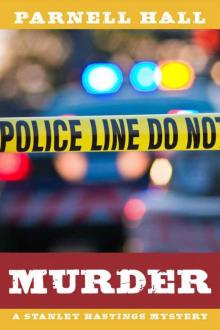 2 Murder
2 Murder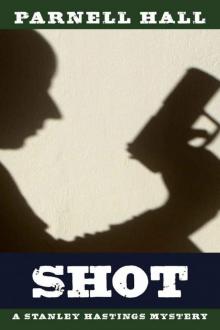 7 Shot
7 Shot You Have the Right to Remain Puzzled
You Have the Right to Remain Puzzled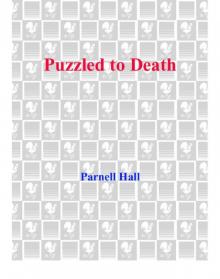 Puzzled to Death
Puzzled to Death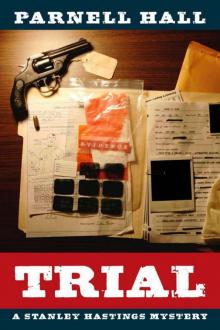 11-Trial
11-Trial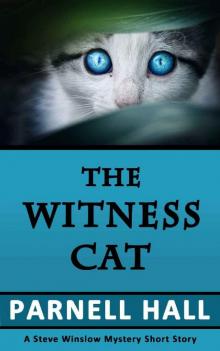 The Witness Cat (Steve Winslow Mystery)
The Witness Cat (Steve Winslow Mystery)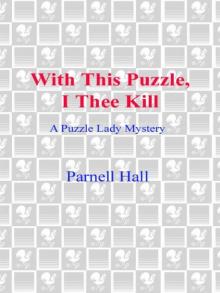 With This Puzzle, I Thee Kill
With This Puzzle, I Thee Kill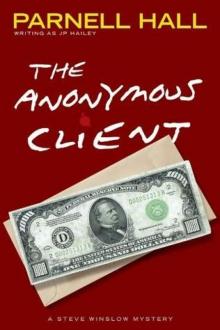 The Anonymous Client sw-2
The Anonymous Client sw-2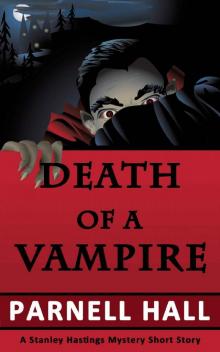 Death of a Vampire (Stanley Hastings Mystery, A Short Story)
Death of a Vampire (Stanley Hastings Mystery, A Short Story)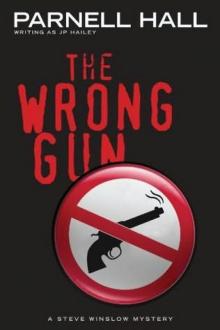 The Wrong Gun sw-5
The Wrong Gun sw-5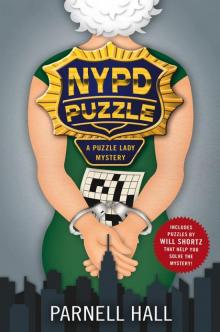 NYPD Puzzle
NYPD Puzzle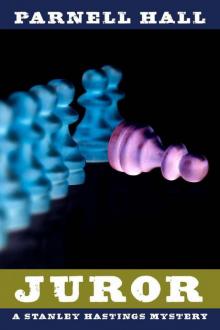 6 Juror
6 Juror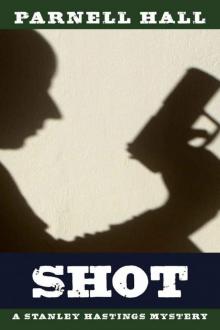 07-Shot
07-Shot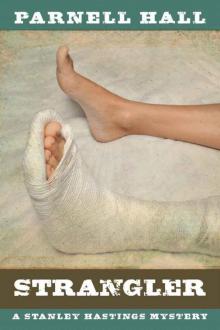 04-Strangler
04-Strangler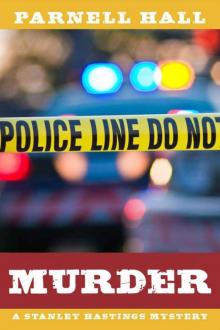 02-Murder
02-Murder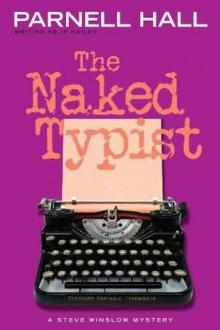 SW04 - The Naked Typist
SW04 - The Naked Typist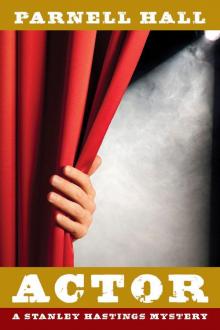 Actor
Actor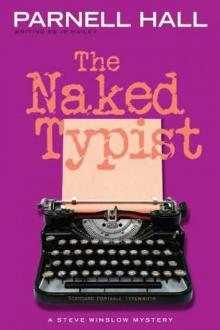 The Naked Typist sw-4
The Naked Typist sw-4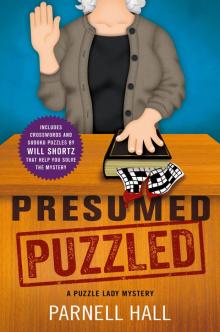 Presumed Puzzled
Presumed Puzzled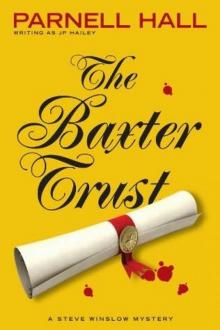 SW01 - The Baxter Trust
SW01 - The Baxter Trust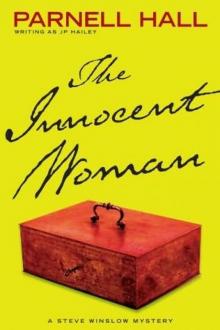 SW06 - The Innocent Woman
SW06 - The Innocent Woman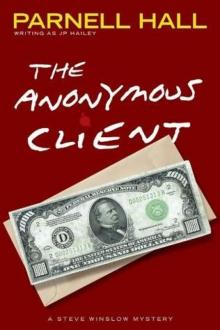 SW02 - The Anonymous Client
SW02 - The Anonymous Client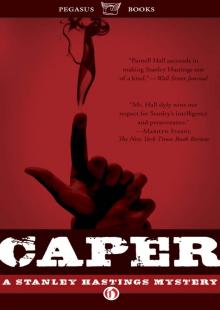 Caper
Caper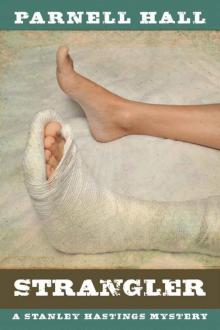 4 Strangler
4 Strangler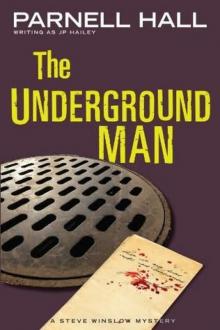 The Underground Man sw-3
The Underground Man sw-3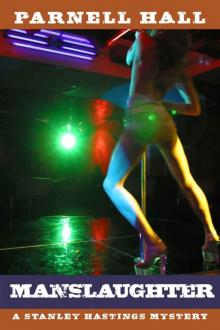 Manslaughter (Stanley Hastings Mystery, #15)
Manslaughter (Stanley Hastings Mystery, #15)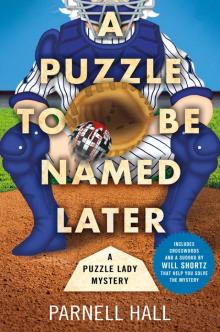 A Puzzle to Be Named Later--A Puzzle Lady Mystery
A Puzzle to Be Named Later--A Puzzle Lady Mystery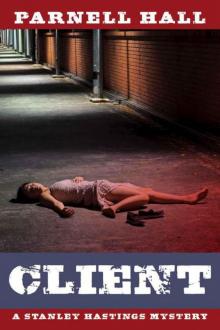 05-Client
05-Client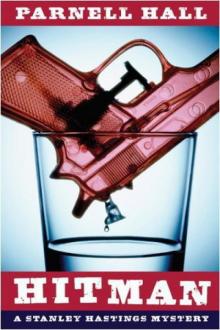 16 Hitman
16 Hitman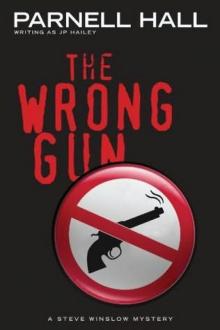 SW05 - The Wrong Gun
SW05 - The Wrong Gun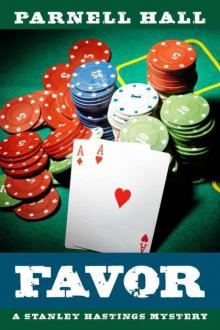 3 Favor
3 Favor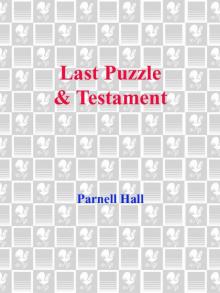 Last Puzzle & Testament
Last Puzzle & Testament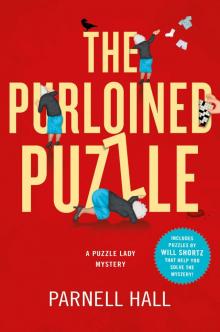 The Purloined Puzzle
The Purloined Puzzle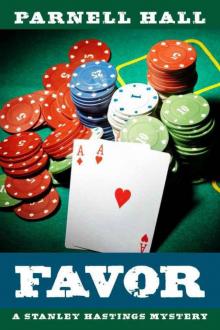 03-Favor
03-Favor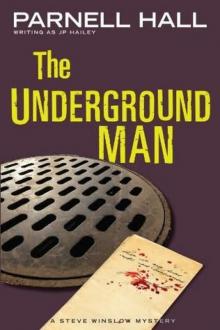 SW03 -The Underground Man
SW03 -The Underground Man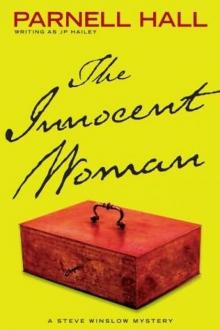 The Innocent Woman sw-6
The Innocent Woman sw-6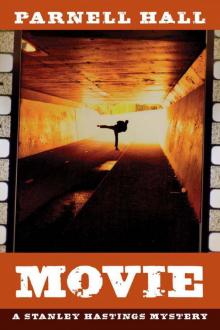 10 Movie
10 Movie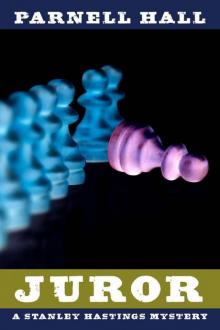 06-Juror
06-Juror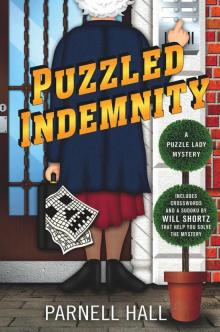 Puzzled Indemnity
Puzzled Indemnity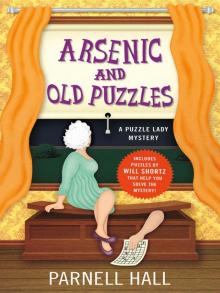 Arsenic and Old Puzzles
Arsenic and Old Puzzles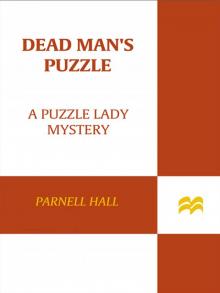 Dead Man's Puzzle
Dead Man's Puzzle Safari
Safari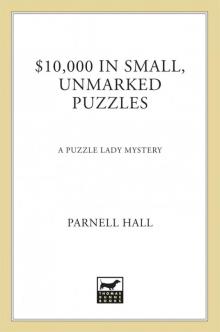 $10,000 in Small, Unmarked Puzzles
$10,000 in Small, Unmarked Puzzles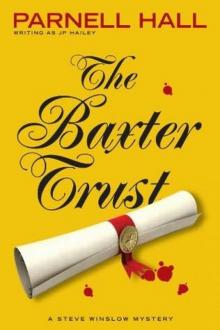 The Baxter Trust sw-1
The Baxter Trust sw-1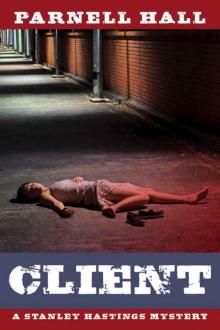 5 Client
5 Client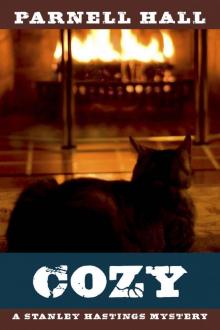 Cozy (Stanley Hastings Mystery, #14)
Cozy (Stanley Hastings Mystery, #14)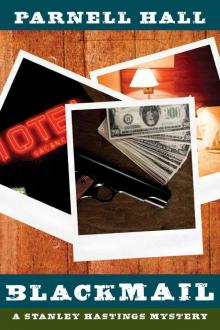 Blackmail
Blackmail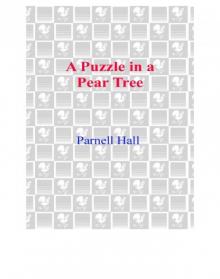 A Puzzle in a Pear Tree
A Puzzle in a Pear Tree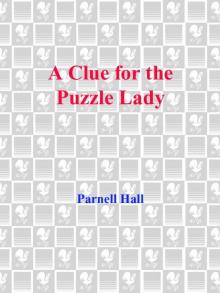 A Clue for the Puzzle Lady
A Clue for the Puzzle Lady Clicker Training (Stanley Hastings Mystery, A Short Story)
Clicker Training (Stanley Hastings Mystery, A Short Story)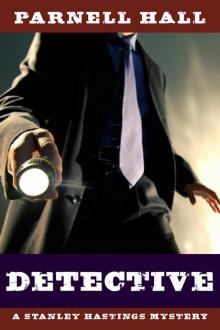 Detective (Stanley Hastings Mystery Book 1)
Detective (Stanley Hastings Mystery Book 1)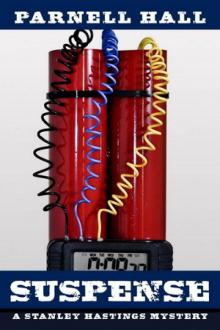 13 Suspense
13 Suspense